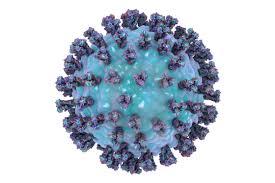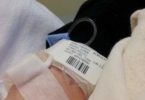What's in this article?
What is Human Parainfluenza Viruses (HPIV)?
Parainfluenza refers to a group of viruses called the human parainfluenza viruses (HPIVs). There are four viruses in this group, and each one causes different symptoms and illnesses. All forms of HPIV cause an infection in either the upper or lower respiratory area of the body.
Symptoms of HPIVs are similar to those of the common cold. When cases are mild, the viruses are often misdiagnosed. Most healthy people infected with an HPIV recover with no treatment. On the other hand, a person with a weakened immune system is at risk for developing a serious and life-threatening infection.
Causes of Human Parainfluenza Viruses (HPIV)
There are four types of parainfluenza virus, all of which can cause upper respiratory infections or lower respiratory infections (pneumonia) in adults and children. The virus can cause croup, bronchiolitis, bronchitis and certain types of pneumonia.
The exact number of parainfluenza cases is unknown. The number is suspected to be very high. Sometimes the viruses cause only a runny nose and other symptoms that may be diagnosed as a simple cold rather than parainfluenza.
Infections are most common in fall and winter. Parainfluenza infections are most severe in infants and become less severe with age. By school age, most children have been exposed to the parainfluenza virus. Most adults have antibodies against parainfluenza, although they can get repeat infections.
Signs and Symptoms of Human Parainfluenza Viruses (HPIV)
The following symptoms occur in many types of parainfluenza infections, although they may be different from child to child or one kind of infection to another:
- A rough, barking cough
- Rapid, noisy, or labored breathing
- Hoarseness and wheezing
- Redness of the eye
- A runny nose
- Cough
- Fever
- A decline in appetite
- Vomiting
- Diarrhea
Treatments for Human Parainfluenza Viruses (HPIV)
There is no cure for HPIV. Once your child is infected, the virus needs to run its course. Antibiotics are not useful. Instead, treatment is aimed at reducing the symptoms.
Traditional treatments for human parainfluenza viruses
HPIV usually cause mild symptoms that can be treated at home. Some ways to reduce the severity of the symptoms include:
- drinking plenty of fluids such as water and juice
- acetaminophen or ibuprofen (as instructed by your child’s doctor) for fever or discomfort
- keep your child as quiet and calm as possible to help decrease the breathing effort
- cool mist humidifier in your child’s room






Leave a Comment